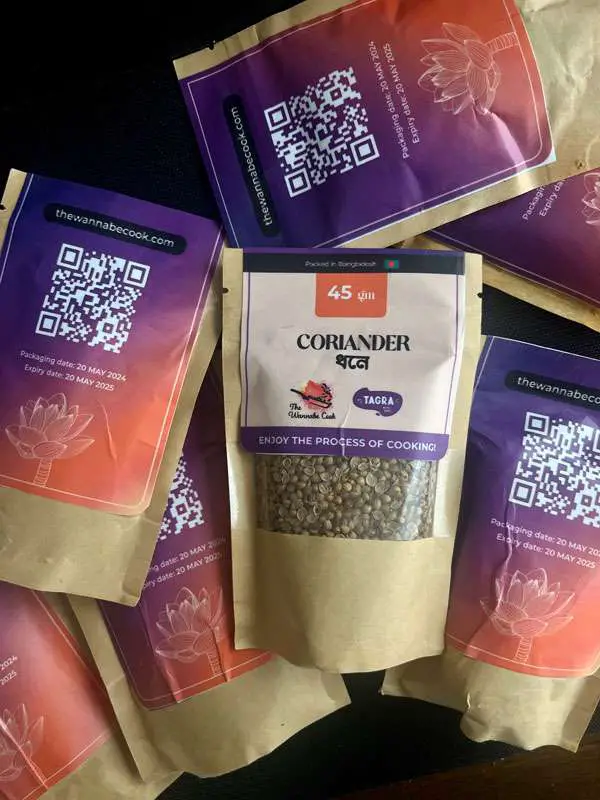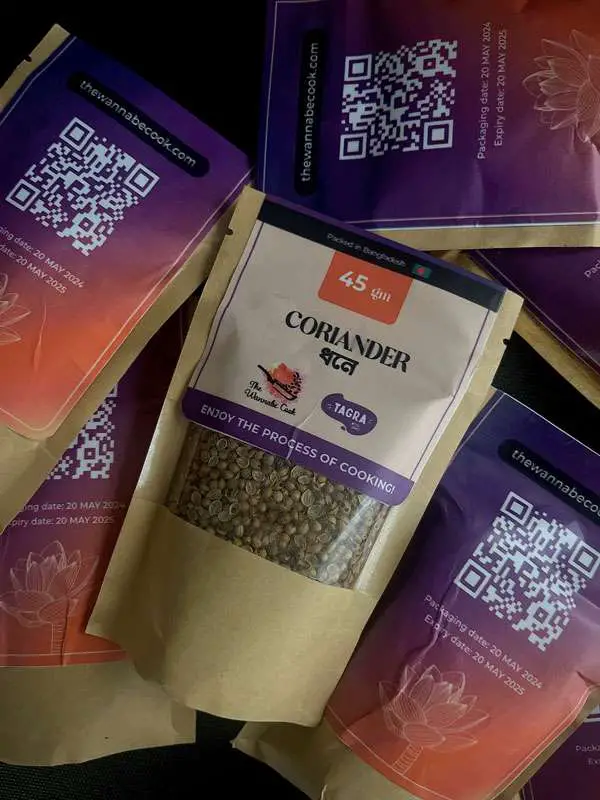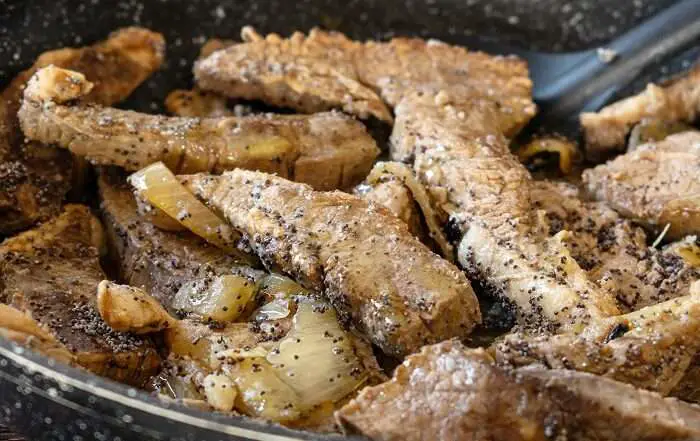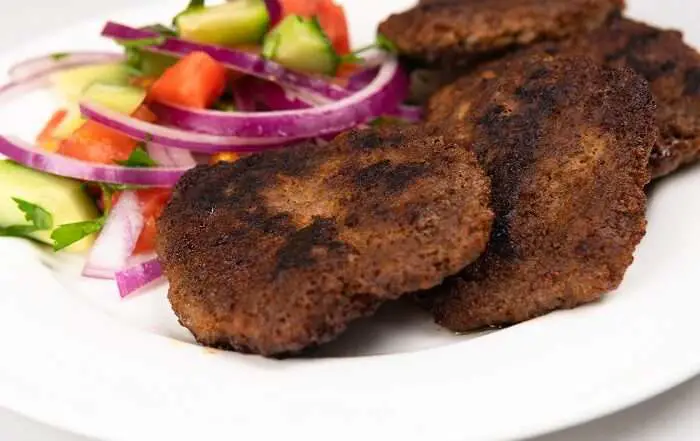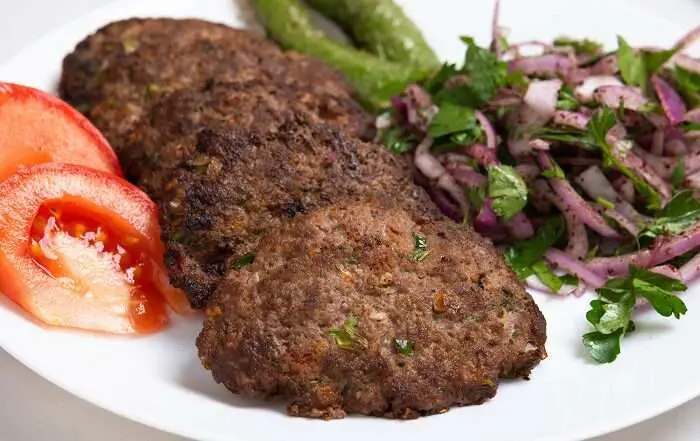Coriander seeds, like cumin seeds, have a long history and originate from regions around the Mediterranean. They are believed to have originated in the Eastern Mediterranean region, possibly in regions of Southern Europe, North Africa, and Western Asia. Ancient Egyptians were known to use coriander seeds in cooking and medicine as early as 1550 BCE, and they spread to other parts of the world through trade routes.
Today, coriander seeds are widely cultivated and used in cuisines across Asia, Europe, and the Americas. They are a key ingredient in spice blends like curry powder and garam masala in Indian cuisine, and they add a distinctive citrusy and slightly peppery flavor to dishes. The plant itself, known as cilantro or Chinese parsley, is also valued for its leaves, which are used fresh as an herb in many culinary traditions.
The history of coriander seeds is rich and spans thousands of years, reflecting its importance in various cultures and cuisines:
Ancient Use: Coriander seeds have been used since ancient times. They are mentioned in ancient Sanskrit texts dating back to 1500 BCE in India, where they were valued both as a spice and for their medicinal properties.
Egyptian and Roman Use: Coriander seeds were found in ancient Egyptian tombs, indicating their use in culinary and religious practices. They were also popular in ancient Rome, where they were used to flavor breads and in cooking.
Spread through Trade: Coriander seeds spread across Europe and Asia through trade routes established by civilizations such as the Greeks, Romans, and Arabs. They became an integral part of Mediterranean and Middle Eastern cuisines.
Medieval Europe: During the Middle Ages, coriander seeds were widely used in Europe, not only for cooking but also for their purported medicinal benefits. They were used to aid digestion and as a treatment for various ailments.
Colonial Era and Beyond: European colonizers introduced coriander seeds to the Americas, where they became integrated into Latin American and Caribbean cuisines. Today, coriander seeds are used worldwide and are a key ingredient in many spice blends and dishes.
Cultural and Culinary Significance: Coriander seeds have cultural significance beyond their culinary use. They are mentioned in ancient religious texts and have been associated with rituals and traditions in various cultures.
Modern Usage: In contemporary cuisine, coriander seeds are used in a variety of ways. They are often toasted or ground to release their aromatic oils before being added to dishes. They contribute a warm, citrusy, and slightly peppery flavor that enhances both savory and sweet dishes.
Overall, coriander seeds have a deep-rooted history, playing a significant role in the culinary traditions of numerous civilizations throughout history and continuing to be valued for their flavor and potential health benefits in modern times.
Health Benefits of Coriander
Coriander seeds offer several potential health benefits, supported by traditional use and modern research. Here are some of the key health benefits associated with coriander seeds:
Digestive Aid: Coriander seeds are known for their ability to aid digestion. They contain compounds that stimulate digestive enzymes and promote healthy bowel movements. This can help alleviate symptoms of indigestion, bloating, and gas.
Anti-inflammatory Properties: Coriander seeds possess anti-inflammatory properties due to their high antioxidant content, including flavonoids, phenolic compounds, and terpenoids. These antioxidants help reduce inflammation in the body, which may benefit conditions like arthritis and inflammatory bowel diseases.
Cholesterol Management: Some studies suggest that coriander seeds may help lower LDL (bad) cholesterol levels while increasing HDL (good) cholesterol levels. This can contribute to a healthier cardiovascular system and reduce the risk of heart disease.
Blood Sugar Regulation: Coriander seeds may help regulate blood sugar levels. Research indicates that they can increase insulin secretion and enhance glucose uptake by cells, which may be beneficial for individuals with diabetes or those at risk of developing diabetes.
Antimicrobial and Antioxidant Effects: The antimicrobial properties of coriander seeds help fight against bacterial and fungal infections. Additionally, their antioxidant properties protect cells from oxidative stress caused by free radicals, which can contribute to various chronic diseases.
Improves Skin Health: Coriander seeds are used traditionally in skincare for their anti-inflammatory and antimicrobial properties. They may help alleviate skin conditions like acne and eczema when applied topically or consumed regularly.
Rich in Nutrients: Coriander seeds are a good source of vitamins and minerals, including vitamin C, vitamin K, and iron. These nutrients support overall health and immune function.
Weight Management: Coriander seeds may aid in weight loss and management. They can boost metabolism and reduce appetite, potentially leading to reduced calorie intake and weight loss over time.
Relieves Menstrual Symptoms: In some traditional practices, coriander seeds are used to alleviate menstrual cramps and regulate menstrual cycles due to their anti-inflammatory and calming effects.
Liver Health: Coriander seeds are believed to support liver function and promote detoxification due to their antioxidant properties and ability to flush out toxins from the body.
Fun Facts
Here are some fun and interesting facts about coriander seeds:
Dual Identity: Coriander seeds are the dried fruit of the coriander plant (Coriandrum sativum), which is also known for its fresh leaves, known as cilantro in the Americas or coriander leaves in other parts of the world. The leaves and seeds come from the same plant but have distinctly different flavors.
Ancient Use: Coriander seeds have been cultivated and used in cooking for thousands of years. They have been found in ancient Egyptian tombs dating back to 3000 BCE, indicating their importance in ancient civilizations.
Global Popularity: Coriander seeds are one of the oldest known spices and are used in cuisines across the world, including Indian, Middle Eastern, Latin American, and Southeast Asian cuisines. They add a warm, citrusy flavor to dishes.
Traditional Medicine: In addition to culinary uses, coriander seeds have been used traditionally in herbal medicine for their digestive and anti-inflammatory properties. They were believed to aid digestion, alleviate stomach cramps, and even treat urinary tract infections.
Symbolism and Folklore: In some cultures, coriander seeds were believed to have aphrodisiac properties and were used in love potions. They were also associated with protection and used in rituals to ward off evil spirits.
Essential Oil Production: Coriander seeds are used to extract coriander essential oil, which is valued for its aromatic properties and used in perfumery, aromatherapy, and as a flavoring agent.
Versatile Use: Apart from culinary uses, coriander seeds are used in brewing certain styles of beer, particularly Belgian witbier, where they contribute a spicy and citrusy note.
Culinary Pairings: Coriander seeds pair well with other spices like cumin, turmeric, and ginger. They are often used in spice blends such as garam masala, curry powder, and harissa.
Easy to Grow: Coriander plants are relatively easy to grow and are popular in-home gardens. The fresh leaves (cilantro) are often used as a garnish or in salads, while the seeds are harvested when the plant flowers and dries out.
Scientific Classification: Coriander belongs to the Apiaceae family, which also includes carrots, celery, and parsley. Its scientific name is Coriandrum sativum.
Level 1: Natural Remedies for Immune Support Using Cardamom
Ways to Incorporate Coriander Seeds into Your Diet:
Spice Blends: Use ground coriander seeds in spice blends like curry powder, garam masala, or dry rubs for meats and vegetables.
Soups and Stews: Add whole coriander seeds to soups, stews, and broths for added flavor and nutritional benefits.
Roasted Vegetables: Sprinkle ground coriander seeds over roasted vegetables to enhance their flavor and nutritional profile.
Salad Dressings: Crush coriander seeds and add them to homemade salad dressings along with olive oil, vinegar, and herbs.
Tea: Prepare coriander seed tea by steeping crushed seeds in hot water. This can be consumed as a soothing drink and may have digestive and immune-supporting benefits.
Coriander Seed Tea: Crush coriander seeds slightly using a mortar and pestle or a rolling pin. Boil water in a small saucepan. Add crushed coriander seeds to the boiling water. Reduce heat and let it simmer for 5-10 minutes. Strain the tea into a cup. Add honey or lemon if desired. Enjoy warm!
By incorporating coriander seeds into your diet through these methods, you can potentially support your immune system while enjoying their aromatic flavor and health benefits. As with any natural remedy, it’s important to consume coriander seeds in moderation as part of a balanced diet for optimal health benefits.
Level 2: Using Cardamom in Dinner Dishes
Coriander Seed Crusted Salmon
Preheat oven to 400°F (200°C). Crush coriander seeds and cumin seeds using a mortar and pestle or spice grinder. Mix crushed seeds with smoked paprika, salt, and pepper. Rub the spice mixture evenly over both sides of the salmon fillets. Heat olive oil in an oven-safe skillet over medium-high heat. Sear the salmon fillets, skin-side down, for 3-4 minutes until golden and crisp. Transfer the skillet to the preheated oven and bake for 6-8 minutes, or until salmon is cooked through and flakes easily with a fork. Serve hot with lemon wedges on the side!
Spiced Quinoa & Vegetable Stuffed Peppers
Preheat oven to 375°F (190°C). In a medium saucepan, toast coriander seeds and cumin seeds over medium heat for 1-2 minutes until fragrant. Add diced onion and minced garlic to the saucepan. Sauté for 3-4 minutes until onion is translucent. Stir in rinsed quinoa, vegetable broth, smoked paprika, salt, and pepper. Bring to a boil, then reduce heat to low, cover, and simmer for 15-20 minutes until quinoa is cooked and liquid is absorbed. Remove from heat and stir in black beans and corn kernels. Stuff each bell pepper with the quinoa mixture. Place stuffed peppers upright in a baking dish. Cover with foil and bake in the preheated oven for 30-35 minutes, or until peppers are tender. If desired, top stuffed peppers with shredded cheese during the last 5 minutes of baking. Serve hot, garnished with fresh cilantro or parsley.
Coriander Seed and Lime Chicken Skewers
In a bowl, combine olive oil, lime juice and zest, crushed coriander seeds, cumin seeds, smoked paprika, salt, and pepper. Add chicken cubes to the marinade and toss to coat evenly. Marinate in the refrigerator for at least 30 minutes, or up to 2 hours. Preheat grill or grill pan over medium-high heat. Thread marinated chicken cubes onto soaked wooden skewers. Grill skewers for 5-7 minutes per side, or until chicken is cooked through and has grill marks. Serve hot, garnished with extra lime wedges and fresh herbs.
These recipes showcase how coriander seeds can add a delightful flavor and aromatic touch to American-style dinner dishes, enhancing both taste and nutritional value.

